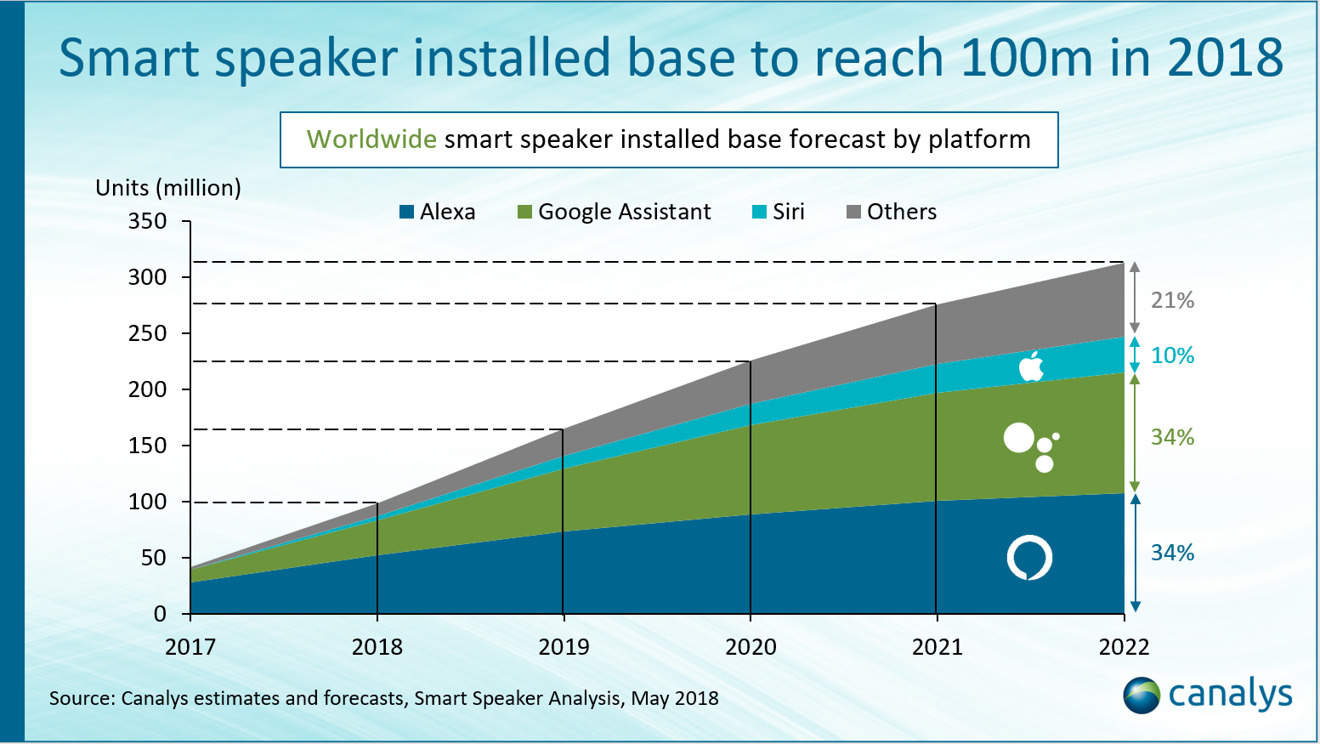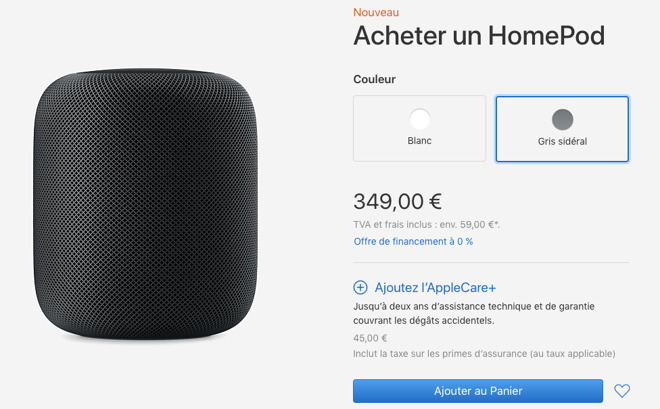Analysts suggest the HomePod could capture ten percent of the smart speaker market by 2022, slowly catching up with its rivals as the sector itself grows exponentially.
A new report from Canalys projects a huge amount of growth in the smart speaker market, in which Apple's HomePod will play a part, albeit a relatively small one.
Canalys predicts the worldwide install base of the smart speaker category will approach 100 million by the end of 2018 — a 2.5-fold increase over the end of 2017. The report also finds that the Apple HomePod's market share at the end of this year will reach 4 percent, compared to 50 percent for Amazon's Echo and 30 percent for Google Home products.
By 2022, Canalys says, Apple will reach 10 percent of the market, with Google and Amazon tied with 34 percent each. The report also found that the U.S. comprises 73 percent of the market, with the U.K. second with 10 percent and Germany third with 8 percent.
The last time Canalys put out quarterly smart speaker figures, in May, Google led with market share of 36.2 percent, following by Amazon with 27.7 percent and a pair of Chinese manufacturers taking the third and fourth spots ahead of Apple.
How Apple fell behind
Apple is behind Google and Amazon in the smart speaker race for several reasons, mostly related to its late start and to the HomePod's higher price point.
In addition, the HomePod has only recently become available in new territories, arriving in Canada, France and Germany last month, while the competition's availability has been widespread for longer.
In addition, Apple has been criticized in some quarters for not opening the HomePod up to third-party developers, as well as various problems that have plagued Siri ever since its launch.
However, it's still very early in the HomePod's development, and projections are merely projections.
 Stephen Silver
Stephen Silver









 Charles Martin
Charles Martin
 Malcolm Owen
Malcolm Owen
 William Gallagher
William Gallagher

 Christine McKee
Christine McKee
 Wesley Hilliard
Wesley Hilliard

 Andrew Orr
Andrew Orr







46 Comments
By 2020, I think Apple will ditch the product just like its previous boom box. By Apple standard, this is not even an acceptable number.
I have a HomePod, but right now I can't recommend it to friends or family.
The problem is that Siri is an embarrassment. I don't even try to ask Siri to do anything other than play music, and she routinely screws that basic task up. if she were able to do anything right, I'd expect it to be playing music (given that it's a speaker!), but nope.
Just to clarify, Siri does understand words pretty well. The problem is figuring out intent/meaning. I actually suspect that if Apple were to ditch the whole "machine learning" approach and instead just write a whole bunch of "if" statements, they might end up with a more usable product (although clearly in the long run, ML is going to be needed)
I's like to see the same graph but based on profits.
As an aside, I now have Alexa, Goggle assistant and Siri on my iPhone and after hours of asking them all the same questions it is pretty amazing for me to discover Alexa and Google assistant are just as prone to the 'I don't know that' as Siri.